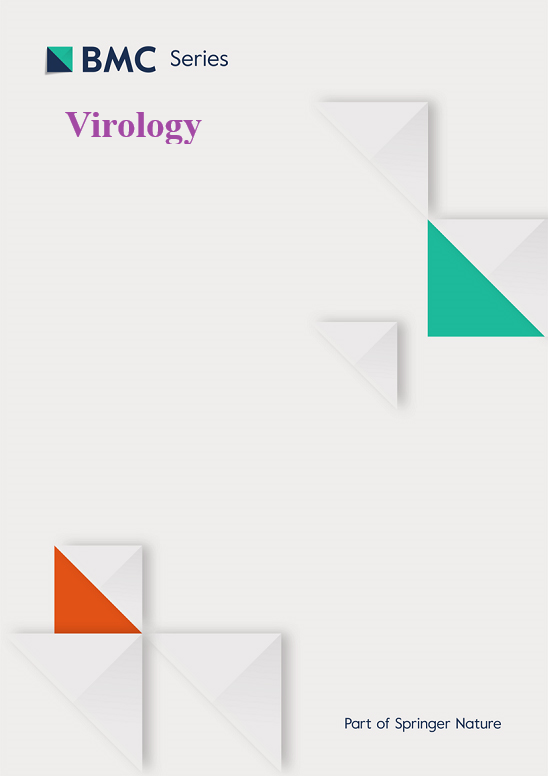Research on the construction method and characterization of neutralizing mouse-canine chimeric antibody against canine distemper virus
IF 2.4
3区 医学
Q3 VIROLOGY
引用次数: 0
Abstract
Canine distemper (CD) is an acute infectious disease that poses significant health risks to canines. Neutralizing monoclonal antibody (mAb) therapy has demonstrated substantial efficacy in prevent CDV infection. However, immune rejection reactions prevent the use of mouse-derived mAbs in the prophylactic protection of CD. Based on the previously developed neutralizing mAb 9-7B targeting the CDV-H protein, this study successfully utilized both single and dual expression vector strategies to integrate the variable regions of mouse-derived mAb with the constant regions of canine-derived mAb, yielding M-C-H/L and M-C-L-H mouse-canine chimeric antibodies through the CHO expression system. The SDS-PAGE and WB results indicate that both chimeric antibodies possess the correct antibody structure. Both chimeric antibodies specifically recognized the CDV-H protein and CDV in indirect ELISA and indirect immunofluorescence experiments and their neutralizing effect on CDV was confirmed in neutralization assays. This study constructed mouse-canine chimeric antibodies against CDV using two methods for the first time, which provides significant guidance for research on prophylactic CD antibody-based drugs.
犬瘟热病毒中和性小鼠-犬嵌合抗体的构建方法及性质研究
犬瘟热是一种严重危害犬科动物健康的急性传染病。中和性单克隆抗体(mAb)治疗在预防CDV感染方面已显示出显著的疗效。然而,免疫排斥反应阻碍了小鼠源性单抗在CD预防保护中的应用。基于先前开发的靶向CDV-H蛋白的中和mAb 9-7B,本研究成功地利用单和双表达载体策略,将小鼠源性单抗的可变区与犬源性单抗的恒定区整合,通过CHO表达系统产生M-C-H/L和M-C-L-H小鼠-犬嵌合抗体。SDS-PAGE和WB结果表明,两种嵌合抗体均具有正确的抗体结构。两种嵌合抗体在间接ELISA和间接免疫荧光实验中特异性识别CDV- h蛋白和CDV,并在中和实验中证实了它们对CDV的中和作用。本研究首次采用两种方法构建了抗CDV的小鼠-犬嵌合抗体,为预防性CDV抗体药物的研究提供了重要指导。
本文章由计算机程序翻译,如有差异,请以英文原文为准。
求助全文
约1分钟内获得全文
求助全文
来源期刊

Virology
医学-病毒学
CiteScore
6.00
自引率
0.00%
发文量
157
审稿时长
50 days
期刊介绍:
Launched in 1955, Virology is a broad and inclusive journal that welcomes submissions on all aspects of virology including plant, animal, microbial and human viruses. The journal publishes basic research as well as pre-clinical and clinical studies of vaccines, anti-viral drugs and their development, anti-viral therapies, and computational studies of virus infections. Any submission that is of broad interest to the community of virologists/vaccinologists and reporting scientifically accurate and valuable research will be considered for publication, including negative findings and multidisciplinary work.Virology is open to reviews, research manuscripts, short communication, registered reports as well as follow-up manuscripts.
 求助内容:
求助内容: 应助结果提醒方式:
应助结果提醒方式:


